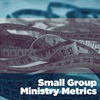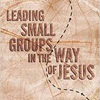Stepping on the scales, checking one's cholesterol, going to the dentist, paying a visit to a financial advisor—these are just a few of the many ways we routinely monitor ourselves and/or our lives.
Some assessments are seen as "no-big-deal" (perhaps taking the car in for a 30,000 mile check-up?). Others are the cause of much dread (perhaps your annual job review or mammogram?). But evaluation, if conducted consistently and correctly, can be of tremendous help.
Close analysis helps us put undue concerns to rest and provides wonderful peace of mind that all is well. Or, the act of self-examination uncovers existing and/or potential problems and serves as the necessary first step in finding a better course of action. So while evaluation isn't usually a "fun" process, it is almost always a profitable exercise.
Here are four truths about the practice of constant and careful evaluation.
Scripture commands it.
In the Old Testament Jeremiah urged his countrymen: "Let us examine our ways and test them, and let us return to the Lord" (Lamentations 3:40).
In the New Testament Paul challenged the church at Corinth: "Examine yourselves to see whether you are in the faith; test yourselves. Do you not realize that Christ Jesus is in you—unless, of course, you fail the test?" (2 Corinthians 13:5).
The point? There is huge spiritual (and eternal!) benefit in putting ourselves and our ways under God's microscope. And if individuals can profit from such a process, it follows logically that our ministries (i.e. our small groups) need similar scrutiny.
Commonsense demands it.
An airline pilot informed his passengers, "I have both good news and bad news. The good news is that we're flying at top speed; the bad news is that our instrument panel is down and we have no idea which direction we're heading." We laugh (or NOT!) at such a story, but it illustrates the truth that activity does not necessarily equal productivity. It is possible to invest time, money and effort doing the wrong things for the right reason. A very dedicated small group leader can be spinning his wheels. And some groups that look good from a distance are actually dysfunctional. Only regular evaluation can keep us aware of problems and moving in the right direction.
Socrates said, "The unexamined life is not worth living." Sigmund Freud noted, "Being entirely honest with oneself is a good exercise." An unknown sage observed, "If you keep doing what you've been doing, you'll keep getting what you've been getting."
The point? The only way to see a better result in your small group ministry is to begin doing better things. And the only way to know what needs to be done differently is to put your group (and your leadership of it) on the examination table.
Our sinful nature resists it.
Several physician friends have commented about the tendency of so many of their patients to avoid seeking medical attention until their conditions are grave. "If only they had come in for regular check-ups," the refrain goes, "so many of their troubles could have been diagnosed and successfully treated at the early stage."
In a similar way we often run from spiritual self-assessment when we sense things are not going well. Yet that is precisely the time we need to submit to the glaring light of truth. It is humbling to have to face up to group failures and personal inadequacies. But with humility comes wisdom (Proverbs 11:2) and, eventually, honor (Proverbs 15:33).
The point? Taking a long, hard, honest look at your small group (and its leadership) now can save you from deeper troubles down the road.
God is our indispensable help in the evaluation process.
David prayed: "Search me, O God, and know my heart; test me and know my anxious thoughts. See if there is any offensive way in me, and lead me in the way everlasting." (Psalm 139:23,24).
Jeremiah addressed the Lord as "you who examine the righteous and probe the heart and mind" (Jeremiah 20:12).
The point? To evaluate ourselves and our groups correctly we need the Spirit's help. He is the Spirit of truth (John 16:13) who leads us into truth. Without divine assistance we may—depending on our personalities—assess ourselves and our groups too lightly or too harshly. Before we ask the first hard question about ourselves as leaders or our groups as communities, we need to pray for the illuminating work of the Spirit—that God will help us to see through his eyes.









